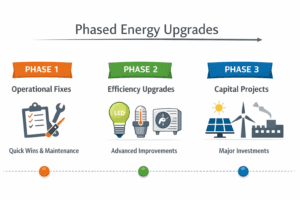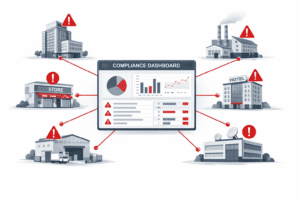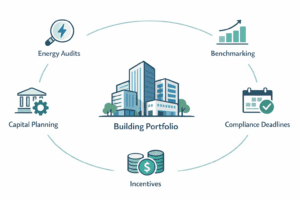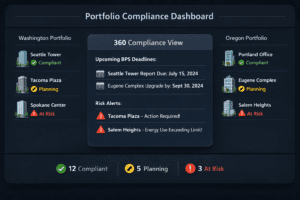I. Introduction
In an industry where towering structures materialize from blueprints, the real foundation of success often lies in meticulous document management. For construction subcontractors, proper handling of Purchase Orders (POs) and Invoices is not just a best practice—it’s an essential component of business operations. The construction sector operates on razor-thin margins, where financial oversight and clear communication are paramount. This blog post details the underrated yet critical role that POs and Invoices play in the construction realm, emphasizing why construction subcontractors must prioritize these financial instruments.
II. Understanding Purchase Orders and Invoices

The relationship between POs and Invoices is symbiotic; they are financial communications that guide the transaction from initiation to completion.
Purchase Orders:
A Purchase Order is a contractual commitment made by the buyer—the construction subcontractor—to purchase specific products or services from a supplier. It captures essential details such as product types, quantities, agreed prices, and delivery timelines. It’s both a roadmap for the supplier and a shield for the buyer, establishing clear expectations for what will be transacted.
Invoices:
An Invoice, meanwhile, is a supplier’s formal bill to the buyer after delivering the ordered goods or services. It itemizes the transaction, requesting payment and indicating when it’s due. It’s the final piece in a well-orchestrated financial duet—the proof of completion that prompts the release of funds.
Relationship Between POs and Invoices:
The PO initiates the contractual relationship, while the Invoice cements it; critical junctures in the construction workflow that, if not handled correctly, can lead to disputes and financial mismanagement.
III. Importance of Purchase Orders to Construction Subcontractors
In the construction industry, where projects involve numerous parties and substantial materials, POs are indispensable for a well-oiled machine.
Streamlining Communication and Workflow
Communication in construction is intricate, with various parties needing to stay informed. POs act as a shared language, ensuring everyone understands the materials and tasks at hand. When subcontractors use POs effectively, they mitigate the risks of errors or misunderstandings that could delay project timelines and inflate costs.
Financial Management and Budget Control
Subcontractors operate within pre-defined construction budgeting constraints. POs serve as a financial planning tool, capturing anticipated costs upfront and enabling real-time tracking against the project budget. They help to avoid the pitfalls of over or under-ordering, which can disrupt the delicate financial equilibrium of a project.
Legal Protection
The legal importance of POs cannot be overstated. In disputes or claims, POs are tangible proof of the terms that both parties agreed to. They are legally binding and can protect subcontractors from the costly consequences of litigation.
IV. Importance of Invoices to Construction Subcontractors
Invoices, like POs, hold significant sway over a subcontractor’s financial health and legal standing.
Ensuring Timely Payment
In the construction industry, where cash flow is king, timely invoicing is essential. Invoices prompt payment, keeping the lifeblood of finance pumping through a subcontractor’s business. Without them, delays can cause cash flow to ebb, hindering the ability to pay staff and suppliers, and potentially stalling projects entirely.
Creating Financial Records
Invoices are the cornerstone of sound construction financial management. They provide a detailed account of all transactions, which is crucial for analyzing financial performance, and substantiating claims and expenses.
Tax Purposes
Come tax time, the importance of invoices is magnified. They are essential for accurate tax preparation, deductions, and filings, helping subcontractors to remain compliant with tax laws and avoid penalties from the IRS.
V. The Consequences of Ignoring Purchase Orders and Invoices
Neglecting POs and Invoices can unravel the financial and operational fabric of a construction subcontractor’s business.
Financial Mismanagement
Without a documented agreement on costs, subcontractors can quickly find themselves over budget. Invoices that are not tracked or reconciled can lead to missed payments and penalties, as well as damaged credit ratings.
Legal Complications
The adage “If it’s not in writing, it didn’t happen” is particularly true in construction. Without POs and Invoices, subcontractors lack the documentation needed to defend against claims or enforce agreements, leading to costly legal disputes.
Damaged Business Relationships
Suppliers and clients expect professional management of financial transactions. A subcontractor that fails to issue or honor POs and Invoices is seen as unreliable, potentially resulting in a loss of business and a tarnished reputation.
VI. How to Properly Process Purchase Orders and Invoices

To ensure financial and operational harmony, follow a structured approach:
- Create Detailed and Accurate Purchase Orders: Each PO should be as clear and detailed as possible, leaving no room for ambiguity.
- Promptly Review and Accept Deliveries: Match each delivery against its PO to ensure accuracy before accepting it.
- Issue Invoices Timely: As soon as the work is complete or the goods are delivered, generate and send an invoice. Delays here can lead to delays in payment.
- Track and Reconcile Documents: Regularly compare POs to Invoices and delivery notes, checking for discrepancies.
Tips:
– Employ the latest financial management software designed for the construction industry to create, manage, and track these documents effortlessly.
– Continuous training for staff on the importance and processing of these documents cannot be overstated. A well-trained team is a precise team.
VII. Conclusion
While the construction industry is often celebrated for the tangible structures it creates, the true edifice of a construction subcontractor’s business is built on the robust management of financial documents. Purchase Orders and Invoices are not mere bureaucratic steps; they are the lifeblood of every successful project and, by extension, business.
Subcontractors should therefore prioritize these financial documents and integrate their management into the heart of their operations. By doing so, they ensure their work is authorized, completed, and compensated correctly—building a reputation for reliability and professionalism that will stand as solid as the structures they help to create.
VertPro.com is the go-to hub for contractors dedicated to elevating energy performance upgrades for their clients. Our expansive suite of offerings includes expert Commercial Energy Audits, adept Benchmark Compliance consultation, and expansive Construction Marketplace. At VertPro®, we pride ourselves on delivering cutting-edge SaaS technology solutions that simplify the journey through Energy Benchmarking, and Energy Audits/RCx Plus, all while maintaining full compliance with a myriad of more than 60 Energy Benchmarking and Energy Efficiency Regulations nationwide.
At VertPro.com, we don’t just provide the insights and tools for energy management; we also bridge connections between qualified contractors and our client base, eager to upgrade their buildings. This creates a Marketplace where you can expand your project portfolio, ensuring that you’ll have more opportunities to apply your skills and grow your business.















